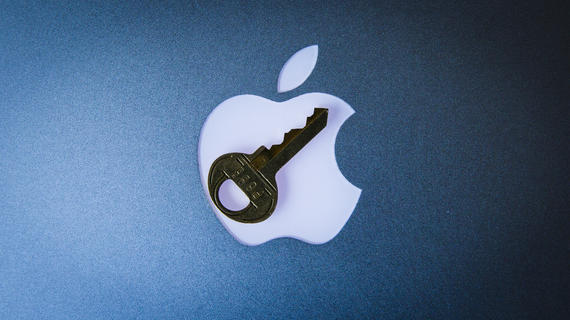
Privacy versus Security: Which do you value more?
By Katherine Littlejohn, Staff Writer
On December 2, 2015, the deadliest terror attack on American soil since September 11, 2001 occurred in San Bernardino County, California, killing 14 people and injuring 22.[1] The shooters, Syed Rizwan Farook and his wife, Tashfeen Mailk, were also killed during a police shootout.[2] Following this tragedy, witnesses provided conflicting testimony regarding how many shooters there were, two (Farook and Malik) or three (leaving an additional, missing assailant).
The FBI believes that Farook’s iPhone 5c will provide the requisite information regarding whether there is a third assailant and whether or not a dormant cyber pathogen endangers the county’s computer network. However, the FBI has been unable to unlock the phone, as it requires a passcode.[3] In a battle that has lead to a widely debated court ruling, the FBI has requested Apple to create a software program to override the iPhone’s security system, allowing the FBI access to the locked iPhone.[4] One side of the argument is that Apple should provide a “back door” for the FBI in order to better protect the United States from such attacks. However, the precedent that will be set if Apple is required to undermine its infamous security protections to provide the FBI access to the iPhone has reignited the debate over whether Americans are willing to give up personal privacy in the name of national security.
In this ongoing controversy, the court ordered Apple to provide the means to unlock Farook’s phone on February 16, 2016.[5] In response, on February 25, 2016, Apple filed a motion to vacate the order arguing the judge’s order violated the company’s First and Fifth Amendment rights.[6] In agreement with Apple, other large companies, such as Google and Microsoft, who are similarly concerned with the privacy of their customers and the effect that this precedent will have, have agreed to file an amicus brief.[7]
Specifically, Apple and similarly large companies are concerned with the privacy of their customers. Bruce Sewell, Apple’s general counsel and senior vice president said, “As attacks on our customers’ data become increasingly sophisticated, the tools we use to defend against them must get stronger too. Weakening encryption will only hurt consumers and other well-meaning users who rely on companies like Apple to protect their personal information.”[8] Apple is fearful that if such a code is provided to the FBI, Apple’s customers will view it as a breach of trust.[9]
The government is not as concerned about the precedent that this case could set, but rather, they are concerned about homeland security. FBI Director, James Comey stated, “[i]t’s a big problem for law enforcement armed with a search warrant when you find a device that can’t be opened even when a judge says there’s probable cause to open it. It affects our Counterterrorism work.”[10] Additionally, the government argues that this case will not set “dangerous” precedent for future cases; it is only for this specific circumstance with this phone.
History and the future of legal precedent are still to be determined. A hearing is scheduled for March 22, 2016, where Apple requested that the court vacate the order requiring Apple to create software to override the iPhone security.[11] So, what’s more important to you, privacy or security?
[1] CBS News, Prosecutor: iPhone could ID unknown San Bernardino attacker, CBS News (March 4, 2016 9:56 PM EDT), http://www.cbsnews.com/news/san-bernardino-shooting-prosecutor-iphone-could-id-unknown-attacker/ (last visited March 4, 2016).
[2] Id.
[3] Id.
[4] Id.
[5] Julia Edwards and Julia Harte, Prosecutor Says Apple Case May Set Precedent for Other Devices, Entrepreneur (March 2, 2016) http://www.entrepreneur.com/article/271803
[6] Everett Rosenfeld, Apple files motion to vacate order compelling FBI assistance, CNBC (February 25, 2016 3:42 PM EDT) http://www.cnbc.com/2016/02/25/apple-files-motion-to-vacate-order-compelling-fbi-assistance.html
[7] Id.
[8] Matthew DeLuca, Unlock an iPhone? Lawmakers Hammer FBI Director in Encryption Hearing, CNBC (March 3, 2016 3:47 PM EDT) http://www.cnbc.com/2016/03/01/fbis-comey-realize-apple-case-may-set-precedent.html
[9] ABC News, Apple Ordered to Help FBI Hack San Bernardino Killer’s Phone, ABC (February 16, 2016) http://abc7.com/news/apple-ordered-to-help-fbi-hack-san-bernardino-killers-phone/1203482/ (last visited March 4, 2016).
[10] Id.
[11] CBS News, supra Note 1